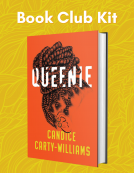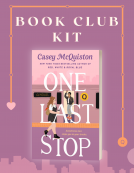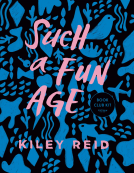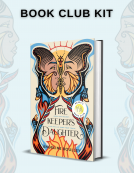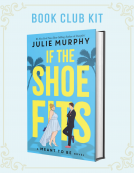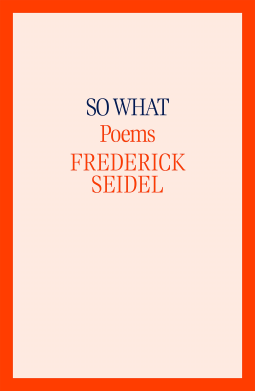
So What
Poems
by Frederick Seidel
This title was previously available on NetGalley and is now archived.
Send NetGalley books directly to your Kindle or Kindle app
1
To read on a Kindle or Kindle app, please add kindle@netgalley.com as an approved email address to receive files in your Amazon account. Click here for step-by-step instructions.
2
Also find your Kindle email address within your Amazon account, and enter it here.
Pub Date Jun 25 2024 | Archive Date Jul 25 2024
Description
A bristling, beautiful new collection from “the Dark Prince of American Poetry” (Dwight Garner, The New York Times).
In So What, Frederick Seidel writes of speeding his racetrack-only Superbike across the island of Manhattan, “illegal river to river, wap wap wap WOW!” The poet hurtles toward the tenth decade of his life and into the sixth decade of his lightning-rod career, but the path from youth to old age is not a straight one. Throughout this book, Seidel smashes the boundaries of youth and age against each other and stirs up a surge of shotguns and wristwatches, late-blooming love and sex, and flashes of the naked face of American life. At its crest stands the poet, looking over the wreckage and creation, and he proclaims: so what.
A Note From the Publisher
Advance Praise
Praise for Frederick Seidel:
"Thank God for Fred Seidel." —Michael Hofmann
"Seidel is not writing about anything as conasoling as moral muddles; he is writing about how life collapses the moral distinctions we make in order to live it.” —Adam Phillips, author of On Giving Up
"He’s the Dark Prince of American poetry, a writer of glittering malice, one who cuts against the grain of almost every variety of community feeling. He’s not a poet for everyone, but no poet worth anything is . . . Meticulous and sublime." —Dwight Garner, The New York Times
“Frederick Seidel, for fifty years and across ten collections, has been writing our most serious, beautiful, and essential poems, poems that are shocking in their art and astonishing in their truth, and that remind us, in their forms, why poetry was once a vital part of cultural life.” —Wyatt Mason, Harper's Magazine
“[Seidel] grips the twentieth century between his teeth like a blade as he speaks . . . One of the more formidable poets of the last third of the century.” —Calvin Bedient, Poetry
“There had never been a poet like this one before: the poet of a new contemporary form, a highlight reel—one spectacular feat after another, with all the humdrum stuff spliced out.” —Dan Chiasson, The New York Review of Books
“One of the greatest lyrical performers of selfhood in English-language literature.” —Jonathon Sturgeon, Flavorwire
“He radiates heat. It is apparent that he has asked himself frightful questions and has not dodged the implications of their equally frightful answers . . . A master of metaphor.” —Louise Bogan, The New Yorker
“Beguiling and magisterial.” —Joel Brouwer, The New York Times Book Review
“Profoundly beautiful . . . The writer willing to say the unsayable.” —Philip Connors, n+1
“One of the world's most inspired and unusual poets . . . His poems are a triumph of cosmic awe in the face of earthly terror.” —Hillel Italie, USA Today
“In all his work, Seidel remains a larger than life figure, full of vice, menace, and power, and capable of uttering the most shocking thoughts. He writes with the same risky power as John Berryman and Sylvia Plath in their confessional poems. Berryman, however, wrote of his inner torments by inventing a surrogate named Henry, while Plath incarnated herself in a series of voracious, quasi-mythical speakers. Seidel, by writing under his own name yet predicating such impossible and scandalous things of himself, raises the stakes of confessional poetry to a new level . . . He remains, even now, a poet of wonderful fearlessness and daring, and he deserves to be remembered as the transgressive adventurer he is.'” —Adam Kirsch, Tablet Magazine
"In American poetry today there is no one with Frederick Seidel's sheer ambition, comprehensive sense of our times, sophistication, nerve, and skill." —Lawrence Joseph, The Nation
Available Editions
| EDITION | Other Format |
| ISBN | 9780374614188 |
| PRICE | $27.00 (USD) |
| PAGES | 160 |
Available on NetGalley
Average rating from 8 members
Featured Reviews
 William F, Reviewer
William F, Reviewer
Frederick Seidel, when I read his Poems 1959-2009, a few years ago, almost immediately, became one of my favorite poets. In a consumer society while most poets rage against capitalism, wealth, and materialism, Seidel born into wealth, writes with a boyish innocence of his adult toys, the women he’s known, the places he’s traveled, and the famous people he’s met, with unabashed joy, a highly translatable joy, and I loved him for it. You can find him in the grand hotels of New York City and speeding down Italian autobahns, guest of a member of the Ducati family. Seidel owns several expensive high end Ducati motorcycles which he rides through his poems.
At nineteen years old, he met Ezra Pound. When Allen Ginsberg met Pound, he asked him to identity some of his Italian place references in The Cantos. The young Seidel went Ginsberg one better, not knowing a word of Chinese, he convinced Pound to change some of his Chinese poems. Seidel was past seventy-three years old, when I first read his poems. What struck me about his poetry is that he seemed to have read everyone, past and present, within the tradition. At eighty-eight, his recognizable influences are fewer. As writers mature, Influences are usually subsumed, hidden within the text, for the most part, recognized by seasoned readers. Seidel in this volume appears to have intentionally divested his work of influences and much of his playfulness, evident by his chosen forms, short poems, easy rhymes, and his tone, forgoing his earlier rigor of content. If I were stumbling on his work for the first time, I would believe he lacked poetic tradition, not even giving him a pass for perhaps dabbling in free form and experimental verse.
But approached as divestiture, the gains accrue in his past work, leaving him just enough poetic wealth for personal use. Traces of his verve of language, his poetic forms, whimsical and playful, remain. A couple of his page long poems are in this volume, speeding along without a care in the world. If mastery, in this case the mastery of poetry, is wealth, Seidel is wealthy. To enjoy one’s wealth in a manner that brings smiles and laughter to the faces of others, at least in the arts, is a real and true gift. Read this volume, but also accept his previous work.
Thank you to Net Galley and Farrar, Straus & Giroux for an advanced reader’s copy.
Readers who liked this book also liked:
We Are Bookish
Literary Fiction, Multicultural Interest, Women's Fiction
Silvia Moreno-Garcia
Historical Fiction, Literary Fiction, Sci Fi & Fantasy
We Are Bookish
Mystery & Thrillers, OwnVoices, Teens & YA
We Are Bookish
Biographies & Memoirs, Nonfiction (Adult), Parenting, Families, Relationships
Rachel Joyce
Historical Fiction, Literary Fiction, Women's Fiction
We Are Bookish
Multicultural Interest, Mystery & Thrillers, Teens & YA
We Are Bookish
Arts & Photography, Health, Mind & Body, OwnVoices
We Are Bookish
General Fiction (Adult), Romance, Women's Fiction
